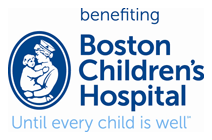Moyamoya Disease
What is Moyamoya?
Moyamoya disease is a rare blood vessel condition that causes narrowing of the blood vessels that go to the brain. "Moyamoya" means “puff of smoke” in Japanese and the name describes the wispy, smoke-like appearance of the blood vessels on an X-ray or other imaging. If left untreated, Moyamoya disease can lead to debilitating and life-threatening strokes. It is also a progressive condition, meaning it gets worse over time and does not go away without medical intervention.
What Moyamoya Disease research does CU Kids at Heart support?
Research on Moyamoya disease, conducted at Boston Children's Hospital and steered by Dr. Edward Smith, a global leader in the study of Moyamoya and the most experienced surgeon for this condition, is one of the fundraising initiatives that the charitable organization supports. In fact, one of the first and still most successful surgeries for Moyamoya was developed at Boston Children’s Hospital and its Moyamoya Program is considered one of the best in the world for the care of these patients. CU Kids at Heart has supported the development of this research for over a decade, witnessing firsthand incredible developments in diagnosis, treatment, and post-operative care.
Frequently Asked Questions
Are there different types of moyamoya?
Yes. The childhood form of moyamoya typically causes stroke symptoms, such as slurred speech, headaches and seizures. More rarely, people with moyamoya may also have bleeding in the brain. Ongoing research - including work now being done at Boston Children's Hospital - is revealing that there are many different genetic causes of moyamoya which may have differences in the severity and symptoms of the disease.
What are the symptoms of moyamoya?
Children with moyamoya may have symptoms that are similar to a stroke, such as:
- weakness on one side of the body
- blurry or otherwise affected vision
- slurred speech
- headaches
- seizures
These symptoms can either begin gradually and get better over time or develop suddenly and persist.
Rarely, a child with moyamoya may have a brain hemorrhage (bleeding in the brain), though this occurs much more often in adults with moyamoya. Warning signs of a brain hemorrhage can include:
- nausea
- vomiting
- fatigue and lethargy
- changes in vision
- severe headache
- numbness in part of the body
You should seek medical treatment right away if a child or adult has any of the warning signs above.
At what age do children typically develop moyamoya symptoms?
The average age of diagnosis is 7, but people of any age can develop moyamoya.
Is it possible that my child's moyamoya will go away without surgery?
No. Moyamoya is a progressive condition. This means the dangerous narrowing in the brain's blood vessels will get worse over time. This can take years or months, but surgery is the only way to reduce the risk of a potentially life-threatening stroke.
What is the long-term outlook for kids with moyamoya?
The good news is that most children who have surgery for moyamoya have an excellent rate of recovery and go on to lead normal, active adult lives, including having families of their own.

Dr. Edward Smith, M.D.
Learn more about Moyamoya and the Moyamoya Program at: https://www.childrenshospital.org/conditions/moyamoya-disease
Watch: Learn more about moyamoya
How we diagnose moyamoya?